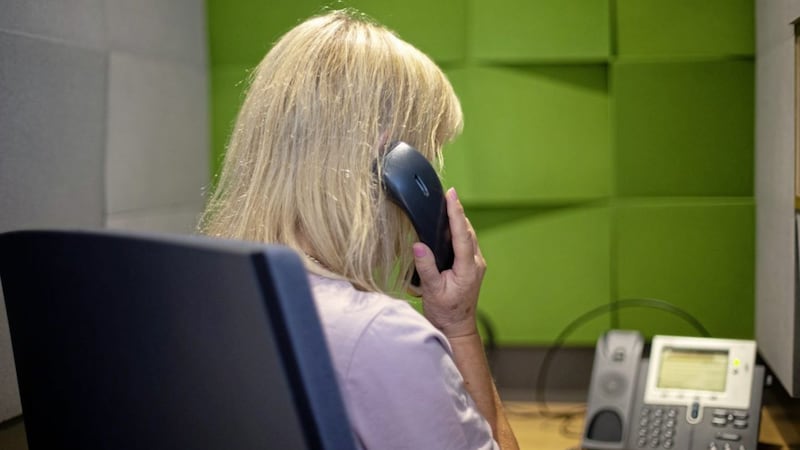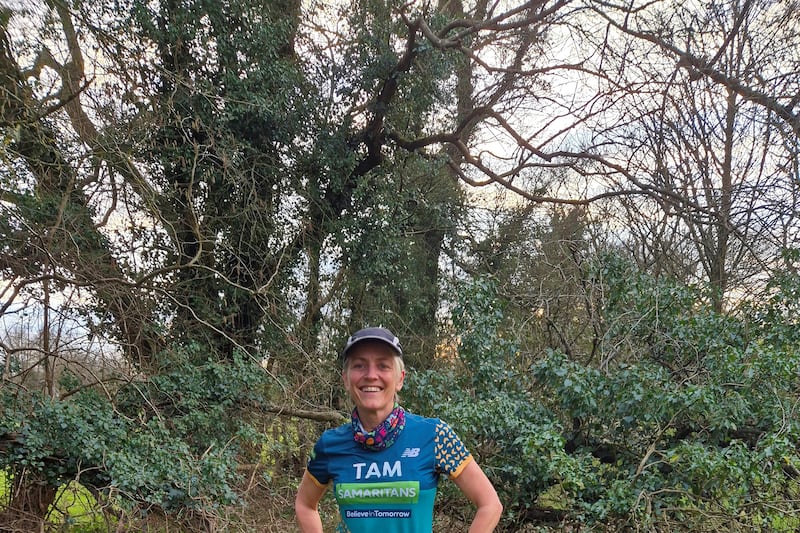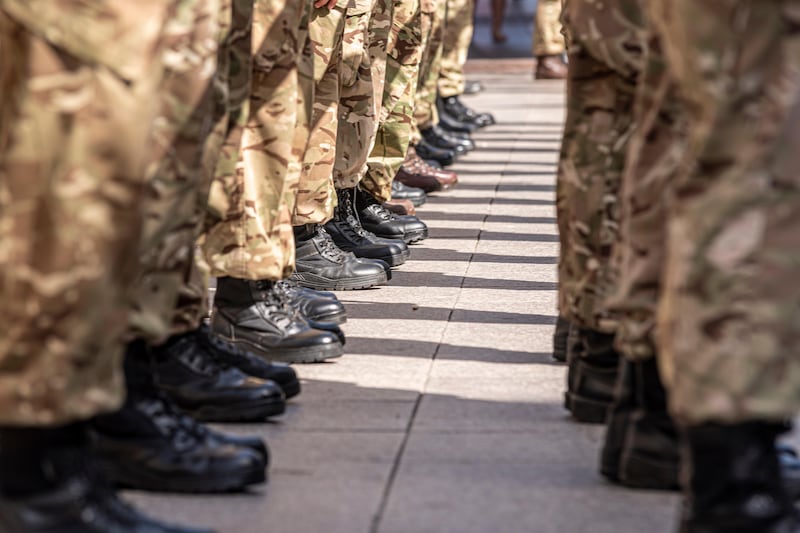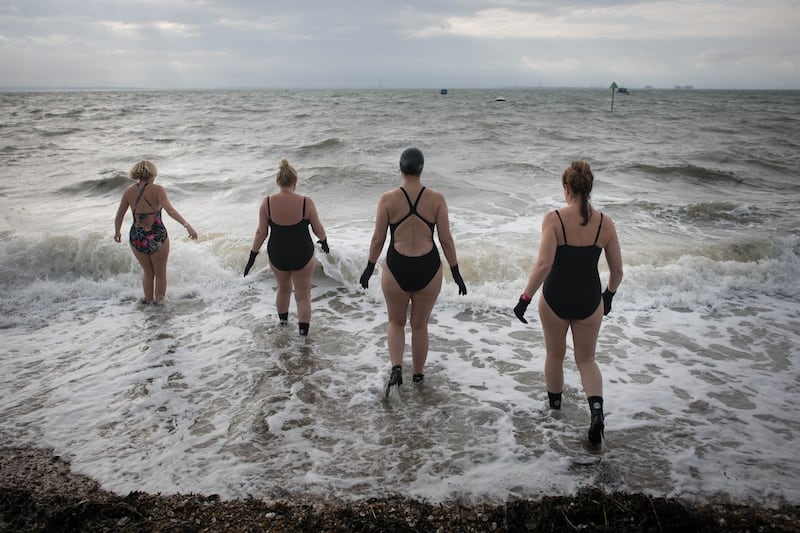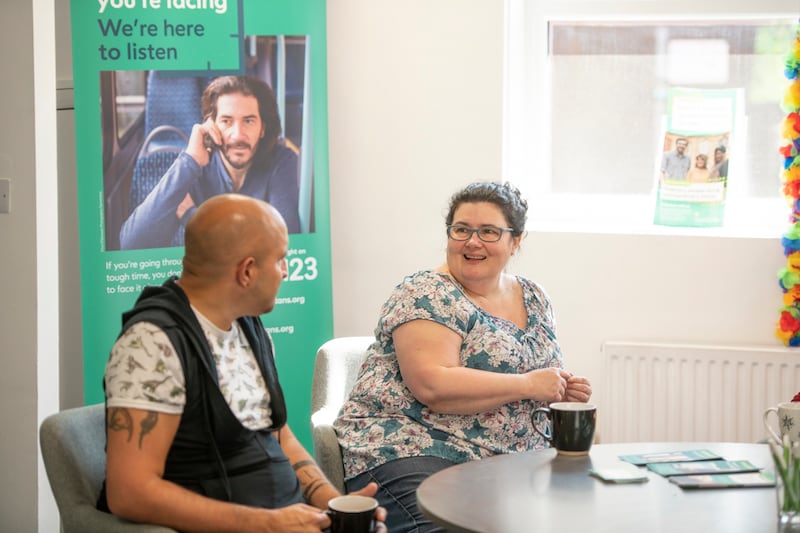FOUR in 10 crisis calls to the Samaritans involve the coronavirus pandemic, according to a spokesman for the organisation, which provides emotional support for people in distress, struggling to cope or at risk of suicide.
Local branches of the helpline organisation are dealing with a daily average of 1,000 calls, yet the Covid-19 emergency has also meant a sudden fall in volunteers in Ireland, north and south.
"Obviously, loneliness is a growing issue. We've only just started tracking Covid as a specific concern but it is referenced on a large number of calls, around four out of 10 calls," the spokesman said.
"Coronavirus isn't necessarily the main feature of most calls but it's in the background if not the foreground of quite a lot of calls at the moment."
Many of the more than 2,300 Samaritans volunteers across Ireland have themselves been forced to self-isolate, shield and cocoon over recent months. But early fears that branches might have to close have proven largely unfounded, with the remaining volunteers taking on extra shifts.
The Belfast branch has had to shut for a few hours occasionally and Ballymena was also forced to close for a short time. Cork closed altogether but only for three days.
Nonetheless it was the first time in more than 50 years, including during the height of the Troubles, that branches had closed down. The charity has to ensure the remaining volunteers are protected, however, so face-to-face visits have had to be suspended.
Niall Mulligan, executive director of Samaritans Ireland, said: "At this critical time of need for the public, we are doing everything that is humanly possible to keep open our 24/7 helpline."
"The Covid-19 pandemic is a massive challenge for all charities at the moment and Samaritans is no different.
"We have experienced a drop in volunteer numbers due to self-isolation, shielding and cocooning. This has impacted on branches, but we were able to deal with this by many volunteers doing additional shifts per week."
He added: "We are also monitoring the national rota daily in order to identify key areas of difficulty for us and responding accordingly."
Branches on both sides of the border handle an estimated half a million callers over a year and, emphasising the confidential nature of their service, the organisation takes no detailed information on the calls.
"So we answer more than 1,000 calls on any given day. It's difficult to be definitive about calls at the moment.
"They ebb and flow on a constant basis, but the key issue for us is that calls appear to be busier and longer," Mr Mulligan said.
An anticipated early avalanche of calls failed to materialise, however, and on some days calls were down – with people declining to use the service because they felt it was being overwhelmed, as many did with hospitals and health centres.
"While our service is confidential, we know that in general when people ring Samaritans for emotional support, they often mention several concerns including isolation and loneliness, anxiousness and mental health, as well as family and relationship issues and it is no different in the current crisis which has magnified some of these issues for callers," the executive director went on.
With speculation of the effect of recent events on public mental health, the organisation stands ready, with its central message to people: "don't bottle things up".
Mr Mulligan said: "Even with restrictions easing, we are quite aware that many people face an uncertain future, and some will be concerned about losing their jobs and their businesses.
"Others may be facing challenging financial circumstances, while some may still have to remain isolated.
"Samaritan Ireland's key message is that if you're struggling with the impact of Covid-19, if life is difficult and you're feeling anxious, stressed or unable to cope, don't struggle through it alone.
"Don't bottle it up. We are here to listen whatever you're going through."
The organisation now has a Freephone network 116 123 or alternatively can be contacted via email jo@Samaritans.ie and Mr Mulligan believes it is "a critical service, needed now more than ever".
"Many people may be feeling more worried or unsettled about what's going on in the world. We are a lifeline for those who have nowhere else to turn, supporting more and more people every year."
But keeping on keeping on means at the moment individual branches maintaining strict hygiene standards and moving phones to adhere to social distancing and ensure volunteer safety.
"We adhere to government advice and the situation is being continually monitored. Like many volunteer-led charities we had to work hard to minimise disruption to our helpline so that our volunteers can support those struggling to cope," Mr Mulligan stressed.
"While we've taken the difficult decision to stop offering face-to-face support in our branches, and training sessions for new volunteers, and it may also take us longer to answer the phone or reply to emails, we're still here."
The organisation insists it is doing everything humanly possible to ensure its 24/7 service remains open, even though the now UK-wide phone network means a caller from Ballymena may find the phone being picked up by a volunteer in Brighton.
Apart from highlighting their own helpline, Samaritans as an organisation has also been active on social media with targeted messaging which seeks to reassure people in relation to the virus and advises individuals on how to take care of their mental health.
This has included signposting information on mental health from reputable websites including the NHS, Gov.ie and the World Health Organisation.
And, when it comes to callers worried about contracting the virus amid growing fears over a potential second surge, or concerned they may have symptoms, Samaritans simply advises to go to their GPs or health services.
"Because of coronavirus, there are a lot of unknowns about the immediate and long-term future and it's becoming clearer that we are going to have to do things a little differently, particularly the way we live our day to day lives," an online statement reads.
"Whilst we are physically isolated it's more important for us to feel socially connected so try to reach out to people to talk and try to be there to listen to others."
Practical ways of maintaining mental health include; "making time for yourself, relax and do things you enjoy"; "eat healthily, get plenty of sleep and exercise", "pay attention to the way you are feeling" and "talk about your problems with people you trust".
And it adds: "Everyone feels low at some point in their lives and if you are struggling to cope, it may be difficult to see beyond your current situation."
:: To speak to Samaritans you can call them for free any time, from any phone on 116 123. More information at Samaritans.org
